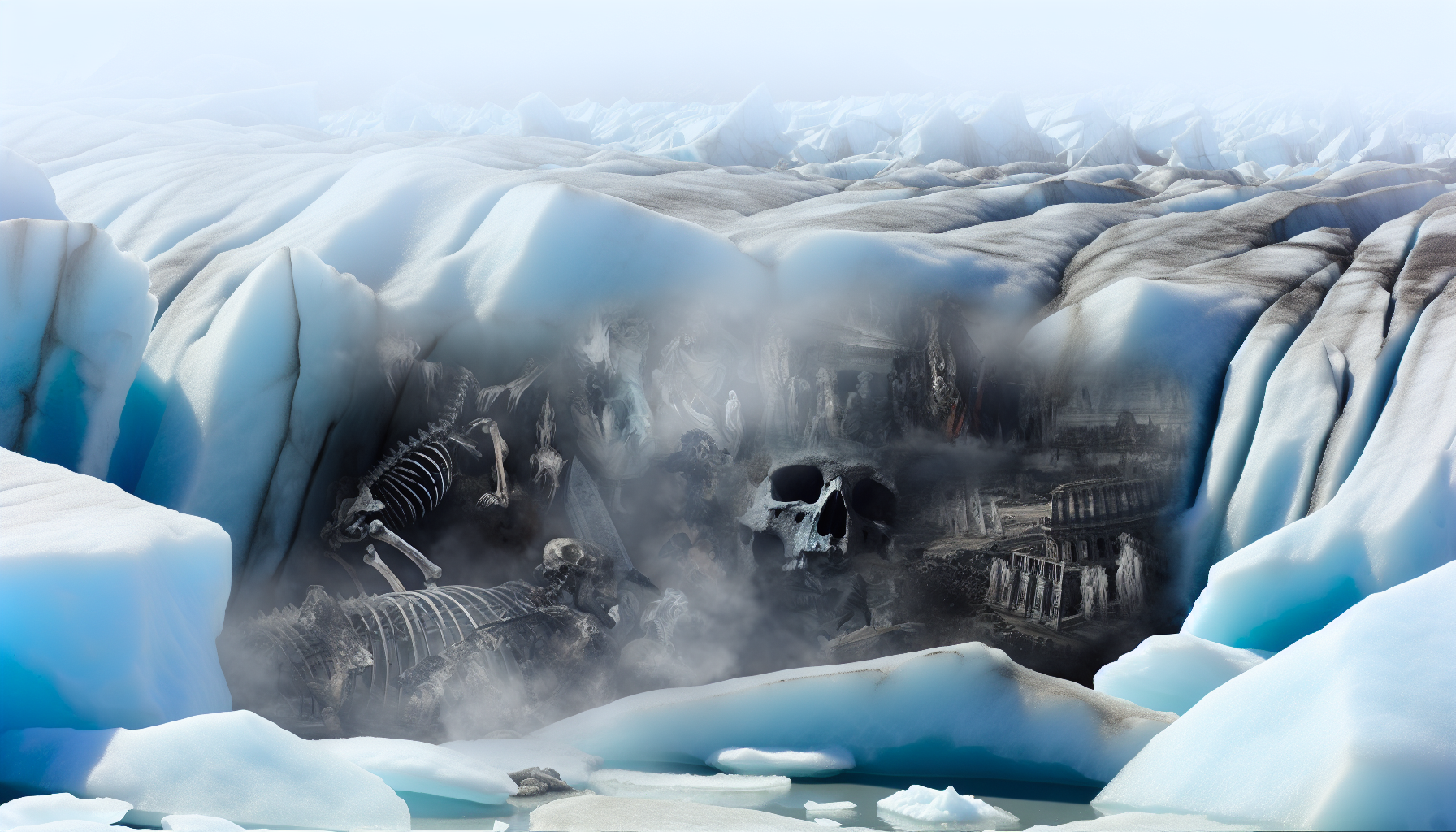In the eerie stillness of the Arctic expanse, our planet’s chronicle is escaping its ancient icy prison. ‘Frozen Tombs – Unearthed Histories from Melting Ice’ explores the latest revelations as Earth’s melting cryospheres yield secrets long buried. This narrative paints a portrait, not of an epoch-defining discovery, but of a solemn symptom of a world gasping within the clutches of rapid climate change.
Our journey begins where the thawing ice succumbs to the relentless climb of global temperatures, a place where science fiction merges with stark reality. The phenomenal finds – organic materials and even preserved carcasses – promise a bounty of knowledge; however, the unearthing is not without consequence. The ceding glaciers and permafrost unveil not just remnants of the ancient past, but they breathe new life into ancient pathogens, whose resurgence humanity may ill afford.
Experts have highlighted these phenomena as nature’s archives. ‘They offer silent testimony to the world’s once-burgeoning biota,’ remarks one scientist, whose study centers on analyzing the unique biochemistry of these paleo samples. Unprecedented in scale, the discoveries draw a parallel between the Ice Age and our era. ‘It’s like the Earth whispering its history to us,’ offers another, ‘as if urging us to hearken to its past for our own survival.’
Yet, the narrative transcends scientific curiosity. The Frozen Tombs illuminate tales of peoples whose cultures were sculpted by the ice. As our environment transforms, so stubs the wick of these rich cultural identities. The urgency of these vanishing histories beckons moral introspection. Are we witnesses to a chilling prophecy foretold by the ancestors of these lands, who now watch as their heritage thaws into obscurity?
‘A trail of ecological breadcrumbs leads us back to ancient civilizations, which perhaps faced their demise in ways not unlike what we may confront,’ a cultural anthropologist solemnly states. It is a sobering reflection that challenges us to question whether we are drafting a tragic epilogue to our tenure on this planet.
In the poetic timbre of these unraveling revelations lies a stark call to action – a reminder that it is not merely the vestiges of ancient life that we stand to lose but the equilibrium of living ecosystems themselves. With every droplet of meltwater, a fraction of Earth’s biodiversity weeps into oblivion.
Bound within this narrative is the essence of hubris. Frozen Tombs illustrates chillingly tangible evidence of what humanity stands to lose. Against this backdrop, unprecedented archaeological and ecological insights are starkly contrasted with the cataclysmic ecological debt we amass with our current trajectory. The article serves not to satiate morbid curiosity but to stir a lament for the shared planet we steadily unmake.
As the final words of Frozen Tombs linger in the silent aftermath of its reading, we find ourselves at a crossroads. To look upon these temporal mirrors is to gaze at the potential annals of our own making. And within the paradoxical grandeur of these discoveries lies a profound lesson – that these tombs of ice should not herald our own.
